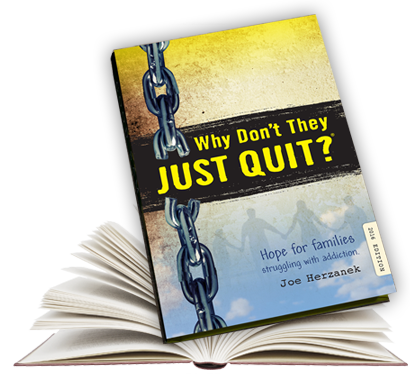The Value of Consequences
“People don’t learn from their mistakes; they learn from the consequences of their mistakes. Remove the consequences, and you will have deprived them of a potentially valuable life lesson.”
The Value of Consequences. It seems that among our many blog posts, the most universal truths are found in those that discuss consequences—and the important role they play in everyone’s life. These ideas apply to all, from toddlers and teens to middle-aged and elderly people. We decided to gather some of our most popular segments and combine them into one post—to be read quickly, or, if you have time, with links to more information or the expanded text. We hope this is helpful to you and that you can share it with a friend.
Raising the Bottom
Addicts like me, and possibly my son, often need to learn things the hard way. Judy vividly remembers a time when Jake was about three years old. She was ironing and told him not to touch the iron— that it was hot. He looked directly into her eyes, stuck out his finger, and touched it. At that moment, she knew this wouldn't be an easy road. Jake would have to learn things the hard way.
“We cannot learn without pain.”
The Value of Pain
Pain can be a powerful teacher. It usually indicates that something is wrong or perhaps broken. Without pain, most people would face even bigger problems. Pain signals that we need to do something different if we want it to stop.
We decided not to rob Jake of these crucial learning opportunities. We weren’t going to lie for him, cover his bail, or pay for lawyers. In one of the seminars we attended, we were advised not to argue with our son; just let the consequences be the 'bad guy.'
“Don’t stop your friend or loved one from gaining the valuable learning experience they’re about to have. ”
Does everyone have to hit rock bottom? I would say no. Tough love can help prevent a substance abuser from prolonging their use. There are loving ways to refuse to rescue someone who, in the long run, will help them choose recovery. Loving means doing the right thing to help. Sometimes, this takes all our strength and energy. "We all hate to see someone suffer even when the suffering is a result of their bad choices." This approach, or some version of it, is worth considering: Raise the bottom. Whether it’s a teenage son or daughter, a spouse, a boyfriend, or a relative, the same principles apply. A few nights in jail could be the best thing that has ever happened to them. The next time this person you care about asks you to get them out of a jam—loan money, pay their electric bill, buy gas, cover legal fees—think twice. You might just be prolonging their disease and depriving them of the natural consequences they need to experience to seek help and start connecting the dots.
“Don’t bail them out. A few nights in jail could be the best thing that has ever happened to them.”
This excerpt is from Chapter 23 (Pivotal Teaching Moments: The “Rock Bottom” Myth) of Why Don’t They Just Quit? Hope for families struggling with addiction.
——————————————
Former Jail Chaplain Joe Herzanek (Boulder County Jail, Boulder, CO) has spent over thirty years working in the criminal justice system, counseling and ministering to inmates. He is an expert on recovery from drug and alcohol addiction. He is also a Certified Family Addiction Counselor, author of the award-winning book “Why Don’t They Just Quit? Hope for Families Struggling with Addiction,” and founder of Changing Lives, Hope for Families Struggling with Addiction. A recovering person himself, his passion is to help families battling addiction. Joe specializes in “crisis counseling” for situations that feel hopeless or impossible. He is exceptionally skilled at helping families find their way “out” and partnering with them to develop a plan.


